REAL NEW DEAL HISTORY
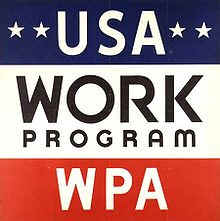 WPA - Works Progress Adm. WPA - Works Progress Adm.
WPA was the largest employer in the country until WWII.
"The goal of the WPA was to employ most of the unemployed people on relief until the
economy recovered. Harry Hopkins testified to Congress during January 1935 why he
set the number at 3.5 million, using Federal Emergency Relief Administration
data. Estimating costs at $1200 per worker per year, he asked for and received $4
billion."
"largest New Deal agency, employing millions to
carry out public
works projects, including the construction of public buildings and roads, and operated
large arts, drama, media, and literacy projects. It fed children and redistributed food, clothing,
and housing. Almost every community in the United States
had a park, bridge or
school constructed by the agency, which especially benefited rural and Western
populations. Expenditures from 1936 to 1939 totaled nearly $7 billion.[1]...Created
by order of President Franklin Delano Roosevelt, the
WPA was funded by Congress with passage of the Emergency Relief Appropriation Act of
1935 on April 8, 1935. The legislation had passed in the House of Representatives by a margin of
329 to 78, but was delayed by the Senate.[1]...Headed
by Harry
Hopkins, the WPA provided jobs and income to the unemployed during the Great Depression in the United States.
Between 1935 and 1943, the WPA provided almost eight million jobs.[2]
(Source: http://en.wikipedia.org/wiki/Works_Progress_Administration
)
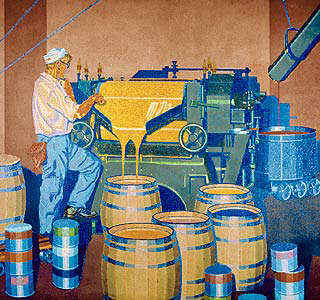 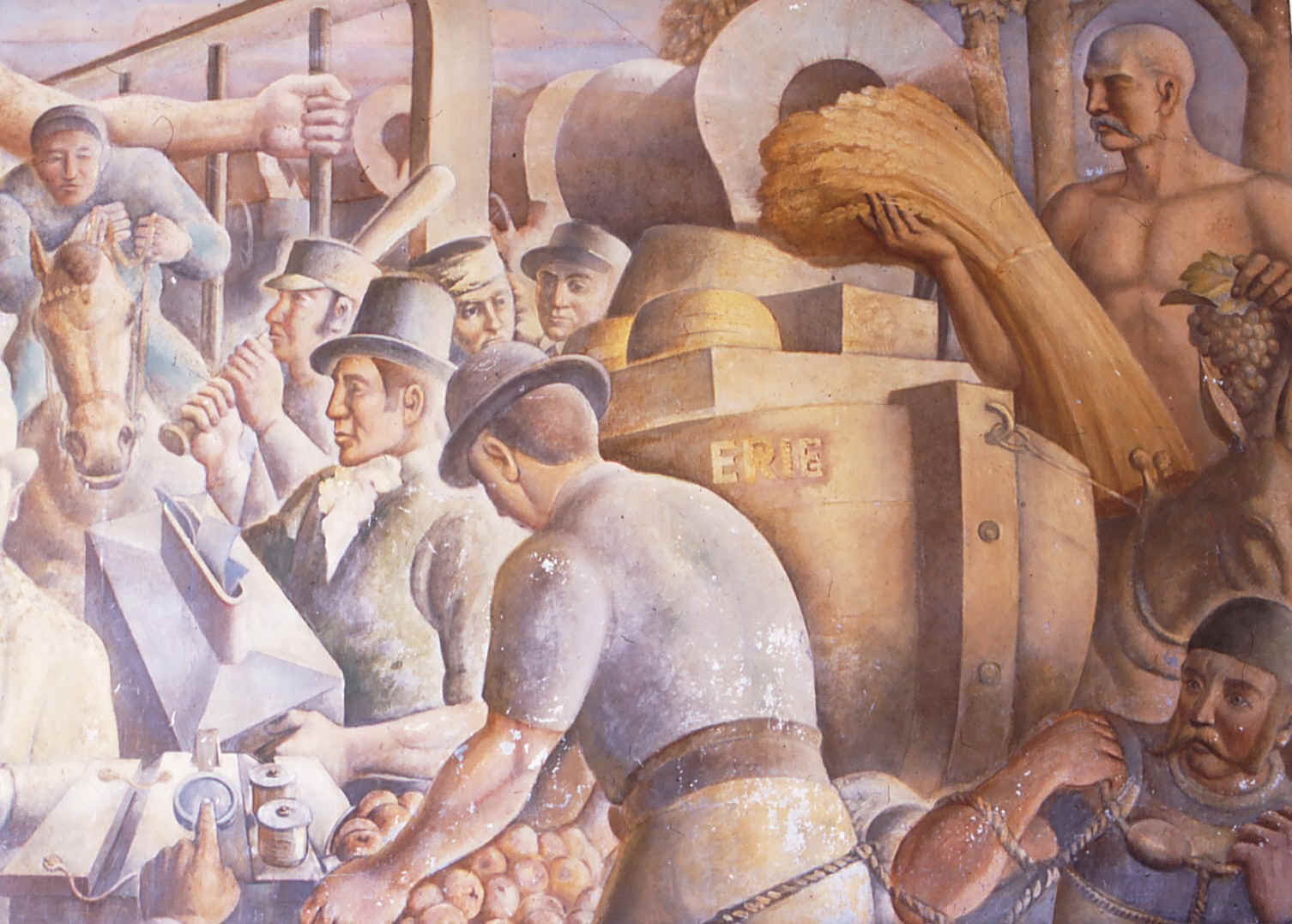
WPA mural in Cincinnati. Now at airport. See
more WPA murals.
New
Deal/WPA Art Project
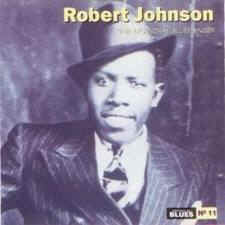
BLUES MUSIC HISTORY PROJECT -
Robert Johnson
lives because WPA people recorded his music for the Library of Congress...
Eric Clapton has called Johnson "the most important blues
singer that ever lived" He was ranked fifth "
in Rolling Stone's list of 100 Greatest Guitarists of All Time.[4]
Eric
Clapton described Johnson's music
as "the most powerful cry that I think you can find in
the human voice." In two takes of "Me and the Devil Blues"
he shows a high degree of precision in the complex vocal
delivery of the last verse: "The range of tone
he can pack into a few lines is astonishing."[49
Listen to him...
http://www.youtube.com/watch?v=Yd60nI4sa9A
http://www.youtube.com/watch?v=3MCHI23FTP8
FDR's
New
Deal Music WPA
Blues That Man on The WPA
"The
Federal Music Project of the WPA was keeping singers and musicians alive" and
performing
in the middle of the Depression.
"The most concerted broadening of musical education and performance came from
the federally sponsored WPA Federal Music Project (FMP). Like other artists, musicians
were devastated by the Depression in the early 1930s. Headed by Nikolas Sokoloff, the FMP,
founded in 1935, sponsored radio broadcasts and musical-education classes and commissioned
work from composers such as George Antheil, William Schuman, and Elliot Carter. The FMP
funded an index of American composers from colonial times to the present and sponsored
folklorists traveling through the South. Between 1935 and 1939 some seven thousand
musicians worked for the FMP in twenty-eight symphonies, ninety small orchestras,
sixty-eight brass bands, and thirty-three opera or choral groups. The FMP sponsored
African American composers and had a hit with The Swing Mikado, Gilbert and
Sullivan done to African rhythms in Chicago and New York in 1938 and 1939. Music spread
and flourished despite decreased economic activity Music
in the 1930s
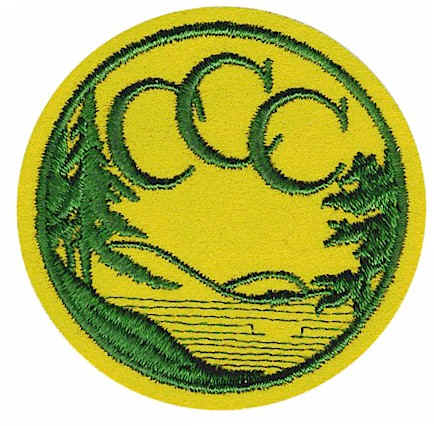 Civilian Conservation Corps (CCC) Civilian Conservation Corps (CCC)
1933-1942
"As part of the New Deal legislation proposed by President Franklin
D. Roosevelt (FDR), the
CCC was designed to provide relief for unemployed youth who had a very hard time finding
jobs
during the Great Depression while implementing a
general natural resource conservation program on
public lands in every U.S. state, including the territories of Alaska, Hawaii, Puerto Rico, and
the U.S. Virgin
Islands. The CCC became the most popular New Deal program among
the general public, providing jobs
for a total of 3 million young men from families on relief.[1]
Implicitly the CCC also led to awareness and
appreciation of the outdoors and the nation's natural resources, especially for city
youth.[2]
The CCC was
never considered a permanent program and depended on emergency and temporary legislation
for its
existence.[3]
... During the time of the CCC, volunteers planted nearly 3 billion trees to
help reforest America,
constructed more than 800 parks nationwide that would become the start of most state
parks, developed
forest fire fighting methods and a network of thousands of miles of public roadways, and
constructed
buildings connecting the nation's public lands.[5]"
(Source: http://en.wikipedia.org/wiki/Civilian_Conservation_Corps
"
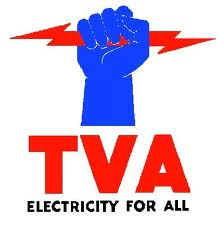 Tennessee Valley Authority Tennessee Valley Authority
Est. May 18, 1933.
"Tennessee
Valley Authority (TVA) is a federally owned corporation in the
United States
created by congressional charter in May 1933 to provide navigation, flood control, electricity
generation, fertilizer
manufacturing, and economic development in the Tennessee
Valley, a region particularly affected by the Great
Depression. The enterprise was a result of the efforts of Senator George W. Norris of
Nebraska. TVA was envisioned not only as a provider, but also as a regional economic
development agency that would use federal experts and electricity to rapidly modernize the
region's economy and society.
TVA's service area covers most of Tennessee, parts of Alabama, Mississippi, and Kentucky, and small slices of Georgia,
North
Carolina, South
Carolina, West
Virginia, Indiana
and Virginia. It was
the first large regional planning agency of the federal government and remains the
largest. Under the leadership of David Lilienthal ("Mr. TVA"),
TVA became a model for America's governmental efforts to modernize Third World agrarian
societies.[1]
"the agency was given authority to enter into long-term (20 years)
contracts for the sale of power to government agencies and private entities, to construct electric power transmission lines to areas not
otherwise supplied and to establish rules and regulations for electricity
retailing and distribution. TVA is thus both a power supplier and a
regulatory
agency.
Today, TVA is the nation's largest public power company, providing electric power to
over nine million customers in the Tennessee Valley. ( http://en.wikipedia.org/wiki/Tennessee_Valley_Authority
)
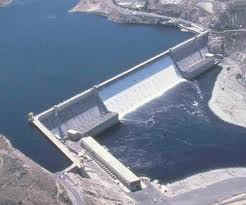 Grand Coulee Dam Grand Coulee Dam
In 1933, President Franklin D. Roosevelt authorized the dam
as a Public Works Administration project, and Congress
appropriated funding...It is the largest electric power-producing
facility[5]
and the largest concrete
structure in the United States.[6]
It is the fifth largest producer of hydroelectricity
in the world, as of the year 2008.
(Source: http://en.wikipedia.org/wiki/Grand_Coulee_Dam
) |
DOES OBAMA KNOW ANY ECONOMIC HISTORY?
Obama
seems so utterly ignorant ot the economic history of the New Deal. He never mentions
FDR,
even though the challenges were similat for both Presidents. We know that he studied
Political
Science and International Relations at Columbia. Having gone to Columbia myself,
I
can say, it would be quite easy for an undergraduate to major in international relations
and
learn relatively little about macronomics or economic history. Why does he speak so
little
of this time in his life? Why does no one remember him? Obama has refused to
release
his
college transcripts.
"Federal
law limits the information that Columbia can release about Mr. Obama's time there.
A
spokesman for the university, Brian Connolly, confirmed that Mr. Obama spent two years
at
Columbia College and graduated in 1983 with a major in political science.
He
did not receive honors, Mr. Connolly said, though specific information on
his grades
is
sealed".
As
a result, Obama gives only hollow economic speeches full of rhetoric, but showing a
pathetic
understanding
of alternative economic policies that might be argued applied in a period of
chronic
high unemployment and high deficits. Not surprisingly, Obama is completely dependent
on
advisers who are repeating the same mistakes that the Japamese did in the 1990s, thnking
that
monetary
policy and very low interest rates would make a difference. he studied political science
and
international relations at Columbia.
At
best, we are risking the experience of the Japanese. At worst, if fiscal spending is
curtailed,
we
are risking a 1937-1938 Stock Market Crash, when FDR backslid towards fiscal austerity
and
balancing a budget with 20% still unemployed.,.
See
TigerSoft's Blog "The Limits of Monetary
Policy" February 5, 2008
"A Deflationary
Spiral Is The Biggest Danger Now" October 23, 2008
"Lessons of
Japan Stagnation: 1990-2003" February
25, 2009
"The Real Obama
Will Protect Wall Street, not Main Street"
From FDR's 1932 Innaugural
Speech
A "...host of unemployed citizens face the
grim problem of existence, and an equally great number toil with little return. Only a
foolish optimist can deny the dark realities of the moment.And yet our distress comes from no failure of substance. We are
stricken by no plague of locusts. Compared with the perils which our forefathers
conquered, because they believed and were not afraid, we have still much to be thankful
for. Nature still offers her bounty and human efforts have multiplied it. Plenty is at our
doorstep, but a generous use of it languishes in the very sight of the supply.
Primarily, this is because the rulers of the exchange of mankind's
goods have failed, through their own
stubbornness and their own incompetence, have admitted their failure, and have abdicated. Practices
of the unscrupulous money changers stand indicted in the court of public opinion, rejected
by the hearts and minds of men.
True, they have tried. But their efforts
have been cast in the pattern of an outworn tradition. Faced by failure of credit, they
have proposed only the lending of more money. Stripped of the lure of profit by which to
induce our people to follow their false leadership, they have resorted to exhortations,
pleading tearfully for restored confidence. They only know the rules of a generation of self-seekers. They have no
vision, and when there is no vision the
people perish.
Happiness lies not in the mere possession of
money; it lies in the joy of achievement, in the thrill of creative effort. The joy, the moral stimulation of work no
longer must be forgotten in the mad chase of evanescent profits. These
dark days, my friends, will be worth all they cost us if they teach us that our true
destiny is not to be ministered unto but to minister to ourselves, to our fellow men.
Recognition of that falsity of material
wealth as the standard of success goes hand in hand with the abandonment of the false
belief that public office and high political position are to be valued only by the
standards of pride of place and personal profit; and there must be an end to a conduct in
banking and in business which too often has given to a sacred trust the likeness of
callous and selfish wrongdoing. Small wonder that confidence languishes, for it thrives
only on honesty, on honor, on the sacredness of obligations, on faithful protection, and
on unselfish performance; without them it cannot live.
Restoration calls, however, not for changes
in ethics alone. This Nation is asking for action, and action now.
Our greatest primary
task is to put people to work. This is no
unsolvable problem if we face it wisely and courageously. It can be accomplished in part
by direct recruiting by the Government itself, treating the task as we would treat the
emergency of a war, but at the same time, through this employment, accomplishing great --
greatly needed projects to stimulate and reorganize the use of our great natural
resources....
We must act. We must act quickly.
And finally, in our progress towards a resumption of work, we require two safeguards
against a return of the evils of the old order. There must be a strict supervision of all banking and credits and
investments. There must be an end to speculation with other people's money. And there must be provision for an adequate but sound currency. |
|

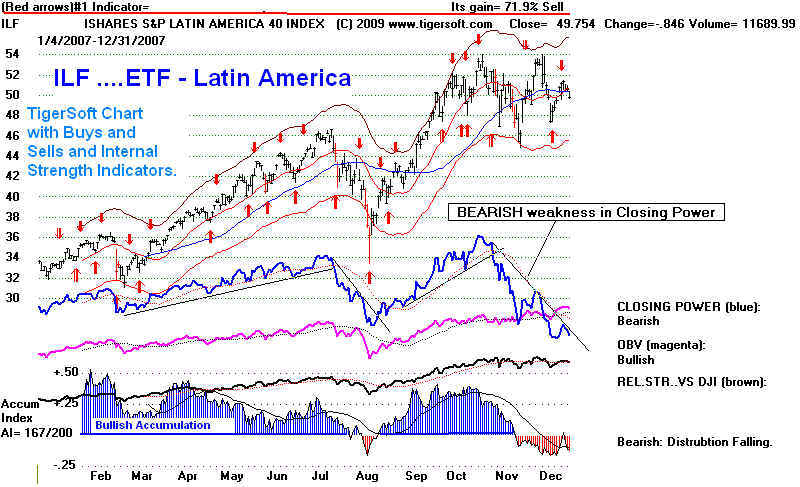

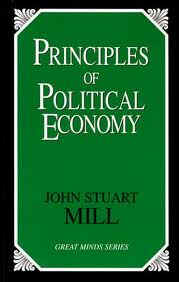

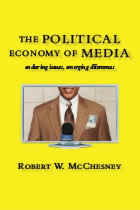
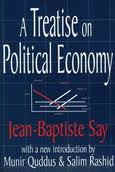
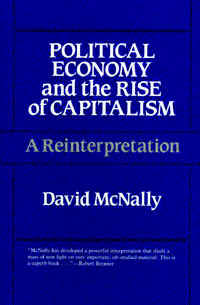
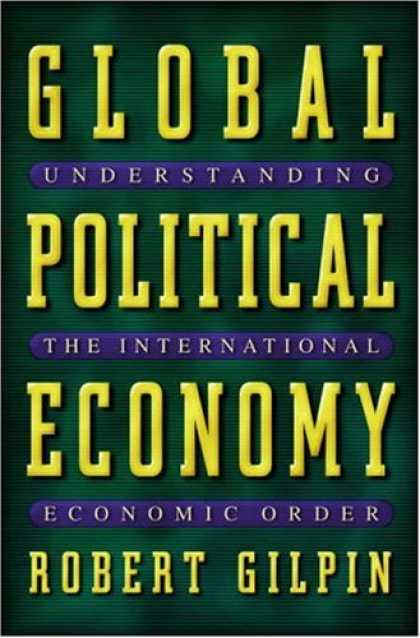
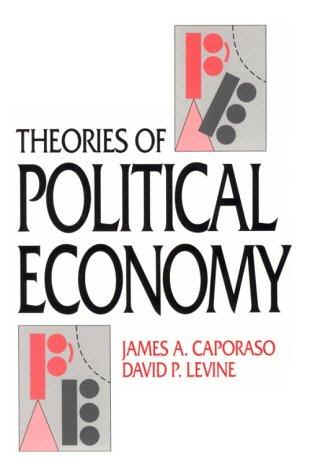
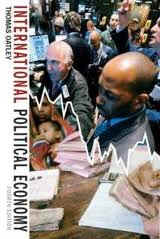
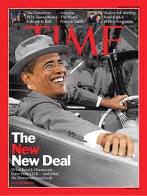


 WPA - Works Progress Adm.
WPA - Works Progress Adm. 


 Civilian Conservation Corps (CCC)
Civilian Conservation Corps (CCC)  Tennessee Valley Authority
Tennessee Valley Authority Grand Coulee Dam
Grand Coulee Dam